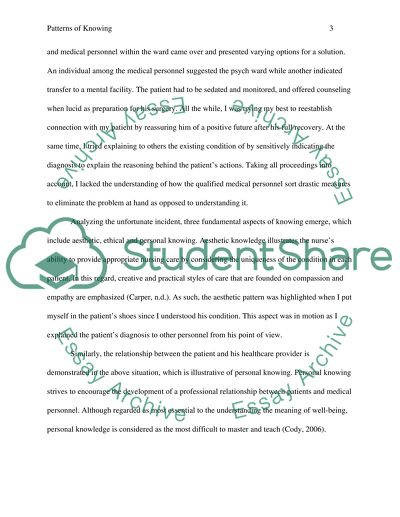Patterns of Knowing Essay Example | Topics and Well Written Essays - 750 words. Retrieved from https://studentshare.org/nursing/1468350-patterns-of-knowing
Patterns of Knowing Essay Example | Topics and Well Written Essays - 750 Words. https://studentshare.org/nursing/1468350-patterns-of-knowing.


